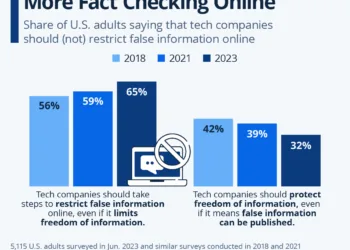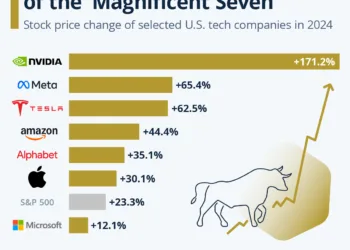The Not-So-Magnificent Seven: A Market Overview
In recent weeks, the U.S. stock market has experienced notable fluctuations, impacting a group of companies that once stood as titans of the tech industry. Dubbed the "Magnificent Seven," these high-flying stocks—comprising Apple, Nvidia, Microsoft, Tesla, and others—are generally perceived as market influencers. However, their recent performance has cast a shadow over their previous standing as reliable market movers.
Understanding the Magnificent Seven
The Magnificent Seven includes some of the most valuable tech firms, often leading market trends and showing remarkable resilience during economic uncertainty. Traditionally, investors have turned to these companies as safe havens due to their substantial market capitalization and consistent growth trajectories. They include:
- Apple
- Nvidia
- Microsoft
- Amazon
- Alphabet (Google)
- Tesla
- Meta (Facebook)
These firms have been pivotal in shaping the tech landscape and have often been celebrated for their innovation and market dominance. However, the recent downturn has presented a drastic shift in their trajectory.
Recent Market Corrections
Despite only briefly sliding into correction territory last Thursday, the S&P 500 index showed a worrying trend as it faced downward pressure. The Magnificent Seven, on the other hand, have been in correction territory for an extended period, with all seven companies closing at least 14.5% below their recent three-month highs. This significant drop highlights the growing concerns among investors about the broader market dynamics.
The Impact on the S&P 500
The S&P 500, a broad indicator of the overall market, dangerously teetered on the edge of a correction primarily due to its reliance on the Magnificent Seven. With these tech giants holding a substantial portion of the index’s weight, any drop in their stock values can have pronounced effects, dragging down the index and further amplifying investor fears.
Spotlight on Individual Performers
Among the Magnificent Seven, the performance varies significantly from one company to another.
Microsoft: The Resilient Player
Microsoft appears to be the least affected by the recent sell-off. The technology giant has managed to navigate market challenges effectively, maintaining a robust position amidst the shifting stock landscape. Its diversified portfolio, including strong performances in cloud computing and enterprise software, contributes to its relative stability.
Tesla: A Cautionary Tale
In stark contrast, Tesla has seen its share price dramatically decline, nearly halving since December 17. This significant downturn can be attributed to several factors:
-
Leadership Scrutiny: The controversial role of CEO Elon Musk in the Trump administration has raised questions about Tesla’s reputation, especially in international markets.
-
Intensifying Competition: As legacy car manufacturers and emerging Chinese brands ramp up their electric vehicle production, Tesla has faced increased competitive pressures, leading to a dip in market confidence.
- Investor Sentiment: Many investors have opted to divest from Tesla, leading to severe drops in share prices. Musk’s status as the largest shareholder has meant that these fluctuations have resulted in reported losses exceeding $100 billion.
The Broader Implications for Investors
The struggles of the Magnificent Seven signal a shift in investor sentiment and market dynamics. As traditional safe havens face challenges, there is a growing need for investors to reassess their strategies in light of changing economic conditions. The tech sector, once seen as the spearhead of growth, is now facing uncertainty, encouraging a more cautious approach in investment decisions.
Conclusion
The current challenges facing the Magnificent Seven underscore the volatile nature of the stock market. With a mix of external pressures and internal challenges, these tech giants are navigating a landscape markedly different from what they have experienced in the past. For investors, this scenario serves as a stark reminder of the inherent risks associated with market reliance on a select group of companies. As the situation unfolds, it will be essential to watch how these tech companies adapt and evolve in response to the pressures they face.


